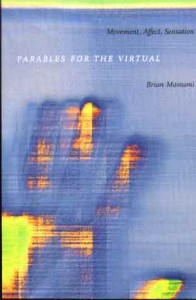 Right before Thanksgiving, I came down with some kind of one-off swine flu and convalesced at my parents’ house before leaving with them to spend the holiday in coastal Florida. The day we left, I had to teach all afternoon and leave directly after, leaving no time to collect the books from my house that I so dearly wanted to read at the beach (my glory box of 10 for $65 from Dalkey had just arrived). Instead, I had under 5 minutes to grab whatever I could from my parents’ house.
Right before Thanksgiving, I came down with some kind of one-off swine flu and convalesced at my parents’ house before leaving with them to spend the holiday in coastal Florida. The day we left, I had to teach all afternoon and leave directly after, leaving no time to collect the books from my house that I so dearly wanted to read at the beach (my glory box of 10 for $65 from Dalkey had just arrived). Instead, I had under 5 minutes to grab whatever I could from my parents’ house.
This seemed a bit like a realer, truer version of those desert-island lists people make. For if you were actually stranded, you wouldn’t be able to come up with an ideal reading list; you will be stuck with whatever is at hand. Luckily, my brother and I have both stashed at our parents’ books that we’d bought forever ago and hadn’t gotten around to reading or taking to our own places, so there were some good options–just zero time to pick carefully among them.
I ended up with, among other volumes, two French Dual Language books and Samuel Beckett’s Watt. By the time I arrived at the beach, my ambition of trying my hand at translating by covering up the English side of French books and then checking had dissolved. I felt a bit unequal to Watt, too. I’ve loved Beckett since I first saw some productions of his plays in Paris, and since then I’ve read a few other plays. But I’ve only read his novels in grad school, where the blows of Molloy, Malone Dies, and The Unnameable were softened by my most excellent teacher, David Gates.
Since then, I have felt, somehow, as if I couldn’t withstand Beckett’s prose on my own, the dead weight of his sentences, his spine-twisting anti-proverbs, the desolation, the threat. But there I lay, on a brilliantly sunlit balcony overlooking the Gulf of Mexico, staring into Beckett’s considerably less sunny universe. And now I’m going to try to convince you why you, too, should turn, or return, to Beckett, Watt specifically. READ MORE >







 Time to find the perfect indie lit bonbon and send it along to your recipient! If you signed up for Secret Santa, you will have just received an email with a link to find out who your person is. Follow the link, click on the name, and you should see their address. If you do NOT see their address, it means they forgot to enter it. You can actually anonymously ask your recipient their address through Elfster. Just go to the exchange
Time to find the perfect indie lit bonbon and send it along to your recipient! If you signed up for Secret Santa, you will have just received an email with a link to find out who your person is. Follow the link, click on the name, and you should see their address. If you do NOT see their address, it means they forgot to enter it. You can actually anonymously ask your recipient their address through Elfster. Just go to the exchange  Right before Thanksgiving, I came down with some kind of one-off swine flu and convalesced at my parents’ house before leaving with them to spend the holiday in coastal Florida. The day we left, I had to teach all afternoon and leave directly after, leaving no time to collect the books from my house that I so dearly wanted to read at the beach (my glory box of 10 for $65 from Dalkey had just arrived). Instead, I had under 5 minutes to grab whatever I could from my parents’ house.
Right before Thanksgiving, I came down with some kind of one-off swine flu and convalesced at my parents’ house before leaving with them to spend the holiday in coastal Florida. The day we left, I had to teach all afternoon and leave directly after, leaving no time to collect the books from my house that I so dearly wanted to read at the beach (my glory box of 10 for $65 from Dalkey had just arrived). Instead, I had under 5 minutes to grab whatever I could from my parents’ house.